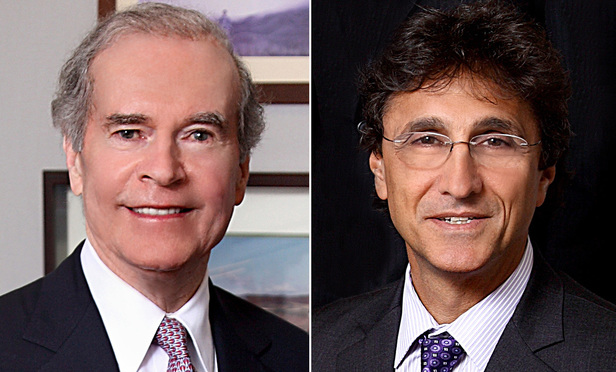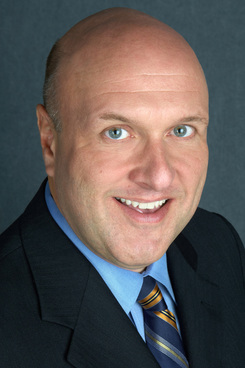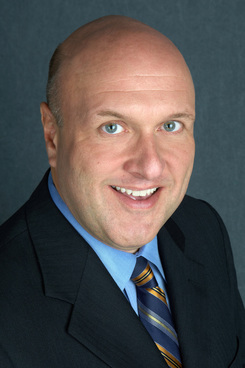Moore

April 04, 2017 | Corporate Counsel
Stop Spreading the News: A 5-Step Guide to Handling Unlawful Content Posted on Social MediaIt might be time to react when someone posts defamatory, offensive or infringing content about you or your business on social media.
By Desiree Moore and Alexis Douglas, K&L Gates
13 minute read

April 03, 2017 | New York Law Journal
Revisiting New York Case Law on Loss of Chance: Part 1Medical Malpractice columnists Thomas A. Moore and Matthew Gaier write that recovery for loss of chance—the diminution of an opportunity for a better outcome after a failure to diagnose—has long been a part of the fabric of malpractice actions in New York, but surprisingly, a question has been raised in recent years as to whether New York recognizes such recovery.
By Thomas A. Moore and Matthew Gaier
28 minute read

March 22, 2017 | Daily Business Review
Grand Jury's Slanted Report on Condo Boards, Managers Needs BalanceA call for changes in state law regulating condo boards and managers to minimize self-dealing needs a real-world analysis, writes attorney John A. Moore.
By Commentary by John A. Moore
9 minute read

February 06, 2017 | New York Law Journal
In 'Pullman', Court Once Again Addresses MedMal Summary Judgment StandardsIn their Medical Malpractice column, Thomas A. Moore and Matthew Gaier analyze the Court of Appeals' holding in 'Pullman v. Silverman', which emphatically confirmed the necessity for an expert affidavit to adequately refute the specific allegations in the bills of particulars to be sufficient to establish a moving defendant's entitlement to summary judgment.
By Thomas A. Moore and Matthew Gaier
20 minute read

December 05, 2016 | New York Law Journal
Expert Disclosures: Timely Objections and PreclusionIn their Medical Malpractice column, Thomas A. Moore and Matthew Gaier review some of the principles that may be divined from the decisions interpreting CPLR 3101(d)(1)(i) relating to preclusion of expert testimony based upon untimely or insufficient disclosure, and discuss some Appellate Division decisions applying those principles in malpractice actions.
By Thomas A. Moore and Matthew Gaier
28 minute read

December 05, 2016 | Legaltech News
4 Things You Need to Know about Federal Anti-Hacking Statutes in Employment DisputesAs several recent cases demonstrate, companies and employers both need to weigh their decisions about their electronic communications.
By Mark Moore, Reavis Parent Lehrer
14 minute read

December 02, 2016 | Corporate Counsel
Four Things You Need to Know about Federal Anti-Hacking Statutes in Employment DisputesThis article will review some of the key upshots for in-house lawyers from recent cases.
By Mark H. Moore
15 minute read

October 03, 2016 | New York Law Journal
Court of Appeals Decision on Sufficiency and Admissibility of EvidenceMedical Malpractice columnists Thomas A. Moore and Matthew Gaier examine the Court of Appeals' recent decision in 'Mazella v. Beals', in which the court addressed issues pertinent to medical malpractice litigation, including the legal sufficiency of evidence of causation and the admissibility of a consent order stemming from charges relating to professional misconduct.
By Thomas A. Moore and Matthew Gaier
20 minute read

September 21, 2016 | Corporate Counsel
Getting Patents Quicker Without Breaking the BankThe PTO's extended After Final Consideration Pilot (AFCP) 2.0 program, which can speed patent prosecution, is even more helpful than it was when the authors first wrote about the initial version in 2014.
By Daniel Ovanezian and Michael Moore
13 minute read

August 23, 2016 | Daily Business Review
Without Insurance Coverage, What Good Is Construction Defect Law?Property owners and contractors challenge insurance industry attempts to avoid coverage when parties push to resolve construction defect claims before lawsuits are filed, writes attorney John Moore.
By Commentary by John Moore
8 minute read
Trending Stories
- 1Bucking Industry Trend, Sidley Austin Elects Biggest Class of Partners in Firm History
- 2US Judge Throws Out Sale of Infowars to The Onion. But That's Not the End of the Road for Sandy Hook Families
- 3‘Really Deflating’: Judges React to Biden Threat to Veto New Judgeships Bill
- 43 Incidents Lead to Charges Against the Alexander Brothers; Cousin Remains at Large
- 5Sidley Austin Elects Biggest Combined Class of Partners and Counsel in Firm History
More from ALM
- Legal Speak at General Counsel Conference East 2024: Match Group's Katie Dugan & Herrick's Carol Goodman 1 minute read
- Legal Speak at General Counsel Conference East 2024: Eric Wall, Executive VP, Syllo 1 minute read
- Legal Speak at General Counsel Conference East 2024: Virginia Griffith, Director of Business Development at OutsideGC 1 minute read



